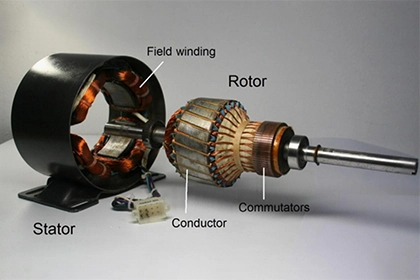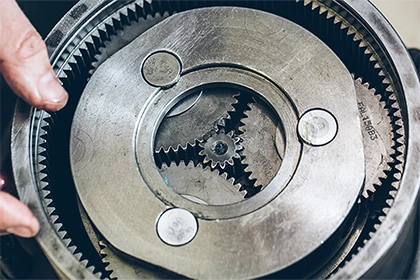
What is the impact of commutation on PMDC motor performance?
Understanding how commutation affects PMDC motor performance allows you to improve the motor's functioning for your unique application.
The commutation process is an essential aspect of PMDC motor operation that can have a significant impact on its performance. Commutation refers to the process of switching the direction of current flow in the motor, which is necessary to keep the motor running smoothly. The timing and effectiveness of the commutation process can affect the speed, torque, and efficiency of the motor. By understanding the impact of commutation on PMDC motor performance, you can optimize the motor's operation for your specific application.
In a PMDC motor , the commutation process is necessary to keep the motor running in a specific direction. The motor's stator, which consists of permanent magnets, creates a magnetic field that interacts with the magnetic field generated by the rotor's winding. By controlling the direction of the current flowing through the rotor winding, the motor can maintain a constant rotation in the desired direction.
The commutation process is typically controlled by a mechanical commutator, which consists of a set of copper segments that make contact with the motor's brushes. As the rotor turns, the brushes contact different segments of the commutator, switching the direction of current flow through the rotor winding.
The timing and effectiveness of the commutation process can impact the speed, torque, and efficiency of the motor. If the commutation process is not synchronized with the rotor's rotation, it can cause the motor to stutter or even stall. Additionally, if the brushes or commutator are worn or damaged, it can cause arcing or other issues that can impact motor performance.
To optimize the impact of commutation on PMDC motor performance, there are several factors to consider. The number and size of the commutator segments can affect the motor's speed and torque output, as can the number of brushes used to make contact with the commutator. Additionally, the quality and durability of the brushes and commutator are critical to ensuring smooth and effective commutation.
In conclusion, the impact of commutation on PMDC motor performance cannot be overstated. The timing and effectiveness of the commutation process can affect the speed, torque, and efficiency of the motor, so it's essential to optimize commutation for your specific application. By considering factors such as the number and size of commutator segments and the quality of the brushes and commutator, you can ensure smooth and reliable motor performance.



Leave a Comment